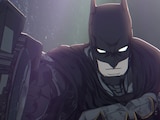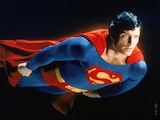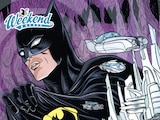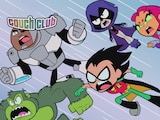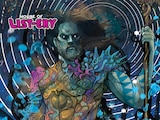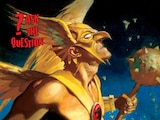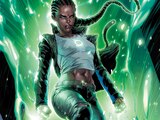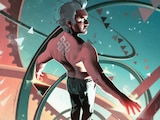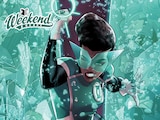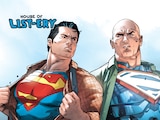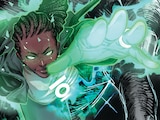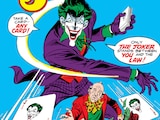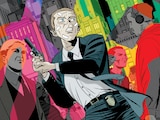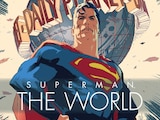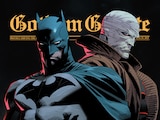Mark Waid has been on a tear. Since returning to DC in 2021 with Batman/Superman: World’s Finest, the award-winning writer of Superman: Birthright and Kingdom Come has gradually expanded his work in the DC Universe, tackling both deep-cut favorites like Shazam! and the Silver Age Teen Titans, as well as DC’s A-list in events like Lazarus Planet and Batman vs. Robin. But that was only the beginning.
Absolute Power, Waid’s four-issue miniseries that sees Amanda Waller seemingly destroying the world’s superheroes once and for all, is now in full swing, and he’s not stopping there. At San-Diego Comic-Con, it was announced that Waid will be reuniting with his Batman/Superman: World’s Finest artist Dan Mora for Justice League Unlimited, a highly anticipated new series that will bring back DC’s premiere super team. And as if that weren’t enough, he’s also teaming with artist Chris Samnee on Batman and Robin: Year One, a twelve-issue limited series focused on Batman’s earliest days with Dick Grayson. With so much on its way from Waid, we thought the time was right to check in with him to see what he has in store for all of us DC fans.

What was the inspiration for the story behind Absolute Power?
We wanted to do something with Amanda Waller and also Failsafe. But really, we needed something to help launch a new Justice League book. First thing I always ask is, “What is the worst thing we can do to these heroes?” And in this case, in this moment and time, she wins. She strips them of all their powers. There’s no multiverse or microverse or time travel for them to escape to. I wanted that to be the end of issue #1—to be the most hopeless moment. So how do these heroes persevere with no powers at all, when they’re just regular people?
There’s a line from Absolute Power: Ground Zero that Waller has: “There are people who should not have the power they have…they didn’t earn it, but they are the ones making decisions for everything.”
What’s your take on Amanda Waller? Has she lost her mind? How antagonistic should we expect her to be?
She still believes that she’s very much doing the right thing, and I hope that comes across in the ensuing issues of Absolute Power as we get near the end. There’s a line in issue #2 where Brainiac Queen says that now they’ve captured the heroes, they pursue their friends and loved ones. And Waller tells her no, those are the people she’s trying to protect.
She’s not a psychopath. Now, she has clearly crossed several lines she wouldn’t have crossed five or ten years ago, and there will be a comeuppance for that. But I don’t think she’s like this forever. And the advantage I have is John Ridley on the Absolute Power: Origins miniseries telling Amanda’s origin story, and he’s doing a great job making sure she’s still a three-dimensional character.

Speaking of new characters, there’s Dreamer. You co-wrote her Ground Zero story with Nicole Maines, who is in a unique position having helped develop the character in TV, then working to integrate her into comics continuity. As a veteran writer, what was it like working with her?
It was so much fun because she has that great point of view. I’ve written superheroes, but I’ve never portrayed any characters on television. She has a very definite POV on who that character is and what her voice is, and so the biggest part of the collaboration was I had a lot of the story structure in place, but it was up to her to give Dreamer her voice. The scene of the conversation between Dreamer and Jay Nakamura—that’s all her voice. I’m not going to try to imitate it.
Justice League Unlimited has just been announced, and the concept is intriguing because it implies that the DC Universe heroes are all working together—something rarely seen except for shows like Young Justice. What exactly does this imply for specific groups of heroes, such as the Titans or Birds of Prey?
One of the things that comes out of Absolute Power is the heroes deciding that this whole event probably wouldn’t have happened had the Justice League not disbanded and they were still properly communicating with each other. So now it’s not a matter of the traditional JL working together, it’s a case of enlisting everyone who has powers and wants to be on the team. There’s space for the Justice Society, for the Titans, and it will be Superman, Batman and Wonder Woman knowing based on any oncoming threats who is best to take that threat on.

Will every hero in the DCU be drafted or will we see a vetting process where some characters get rejected?
There’s a couple of no’s, but mostly when Superman asks you to join his club, you join the club.
Is it difficult keeping track of not only who to include, but remembering who even exists in the current DCU?
Oh God yes, it’s virtually impossible to keep it all together. For example, the lists I have for Absolute Power and trying to make sure who’s in prison and who’s not—I think we ended up with 92 heroes in prison at some point. Same with Justice League. With such a big cast, I get trading cards to help visualize who I have in play wherever I need them to be. If I didn’t have that visual in front of me, it’d be much harder to keep track of them all. But Dan loves these characters and loves the chance to get to draw them all, very much like George Pérez in how he wants to draw everybody.

Talking about the past, you’re also doing Batman and Robin: Year One. What’s your approach in writing the Dynamic Duo in the pages of World’s Finest, and how does that approach differ for the Year One miniseries?
It differs wildly. Batman and Robin: Year One is about two people who don’t know how to work together. Bruce is very much someone who doesn’t want or need a partner, while Dick Grayson’s life has been spent every night having a partner he can count on. There’s still fun and lightness throughout, but there’s also serious themes on how to be a parent and partner without it imploding, as opposed to World’s Finest where it’s a lot more fun.
When taking on past eras like you’re doing here, do you keep the historical time periods in mind and start from there, or just simply work to modernize characters in younger contexts?
I go into it from the latter point of view, but with Chris [Samnee], he loves that old school period of the characters, and makes it so that it doesn’t look corny, but modern. But he’s taking his cues from the 1950s and ’60s Batman and Robin.
Finally, with you and Dan Mora working on Justice League Unlimited, will World’s Finest be ending?
Not at all! Sadly, we’ll be losing Dan, but we’re bringing on Adrián Gutiérrez, the artist on Blue Beetle. His work looks great. He’s really bringing the thunder.
Absolute Power #2 is now available in print and as a digital comic book. Look for the first issues of Batman and Robin: Year One and Justice League Unlimited coming soon!

